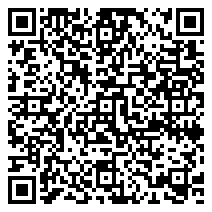
Earlier this month, the Yunnan provincial government began implementing a new "universal insurance program". The purpose of the effort is to extend basic paid coverage to the most remote areas in the province while establishing a comprehensive database of ailments facing those who register.
This policy push encourages most rural villagers to enroll by the end of 2016, although purchasing supplemental plans is not required. Also, by creating a centralized database, the government hopes to conduct analysis in order to better allocate healthcare resources in the future. The current information database has been characterized as "difficult and challenging" by some officials, and having a better-organized system may help both hospitals and patients in handling future treatment.
While all people in Yunnan have basic government-provided medical insurance issued when they turn 18, coverage is rarely more than bare-minimum and does little to reduce costs for serious treatments and surgeries. Thus, the new program is designed to augment the existing insurance structure, supplementing opportunities for rural residents to buy liability medical insurance, encouraging them to spend money now to save money on possible healthcare costs in the future.
While well-intentioned, the Yunnan government appears aware of the fact many of the province's poorest cannot afford to buy even the most basic health insurance. Correcting organizational problems in the healthcare industry have been deemed a top priority by provincial planners.
In Zhaotong Prefecture, the Wumengshan Area Regional Development and Poverty Alleviation Conference concluded yesterday. Participants announced a five-year plan to channel close to 863 million yuan (US$138 million) toward poverty-targeting investment in the prefecture, partly in hopes to increase rural incomes so people can afford to purchase health insurance policies of their own.
On a related note, a new system of participation in the basic medical billing system offered in the provinces of Yunnan, Guizhou and the municipality of Chongqing officially started last week. It operates via the use of a swipable card at any networked hospital in these three regions. Migrant workers with even basic insurance are now able to access treatment at hospitals once unavailable to them, benefiting from higher quality facilities and better treatment.
Image: iFeng
© Copyright 2005-2025 GoKunming.com all rights reserved. This material may not be republished, rewritten or redistributed without permission.








Comments
Seems to me that when the state threw out Maoism they threw out some babies with the bathwater. Universal medical coverage. I don't see why the medical resources that the country has now shouldnt be made available to all citrizens, regardless of income.
Maoism. In some Asian countries "maoism" means toppling ruling power by armed and violent revolution.
Mao's Red Book cant have been written by a human.
Hey, I'm only referring to equal access to health care, not toppling anybody.
Well, now you are suspected as a Maoist. Heh.
Been in India?
And by the way, Alien, theres no disagreement about access to healt care, or anything like that, its just that the word "maoism" is a kind of a token. Maybe not always chosen by mere ..... who knows....
.... and it doesnt matter anyway.
(Sorry for many posts here - no edit button around)
Maoism may not be the best word, okay. What I am referring to is the effort made to establish reasonably egalitarian access to health care that was policy before the 'opening up' of China.
Right. But it was an interesting choice of word, comrade. ;-)
OK, a mistaken one - I should have used some term like 'Chinese socialist policy before the Opening & Reform', mea culpa.
This is just about giving people the option to buy additional insurance and will make little difference. Britain introduced universal free healthcare in 1948 when its per capita income was around half that of China in 2015. There is no economic reason why China couldn't do the same right now. It's simple a lack of political will. No doubt any attempt to do so would be branded "Maoism" or some such.
under Mao, there were the barefoot doctors to treat the poor (i.e. totally unqualified doctors), while the ruling classes had specially reserved hospitals with the best doctors and equipment. So let's not pretend that it was a golden era of access to healthcare.
Why would anyone in 2015 refer to "maoism" in the 1950's or 60's, when there is still "maoism" in 2015 - mostly maoist guerilla movements.
To crack this thing aboit mOism and healthcare, there needs to be a definition on "maoism", and in 2015, what maoism can relate to when used this year. Alien did provide one definition, it went back some 50 years, but to get whole picture a definition on active maoist movements health care views may also be needed.
True about reserved hospitals for ruling classes, tho I'm not sure what percentage of the people we're talking about. The barefoot doctors were certainly not highly qualified, but this was an extremely important beginning for health care in the countryside, where there'd been virtually nothing before. China simply did not have enough highly trained doctors, and they obviously could not have been produced. overnight. The barefoot doctors were a good idea at the time.
Login to comment